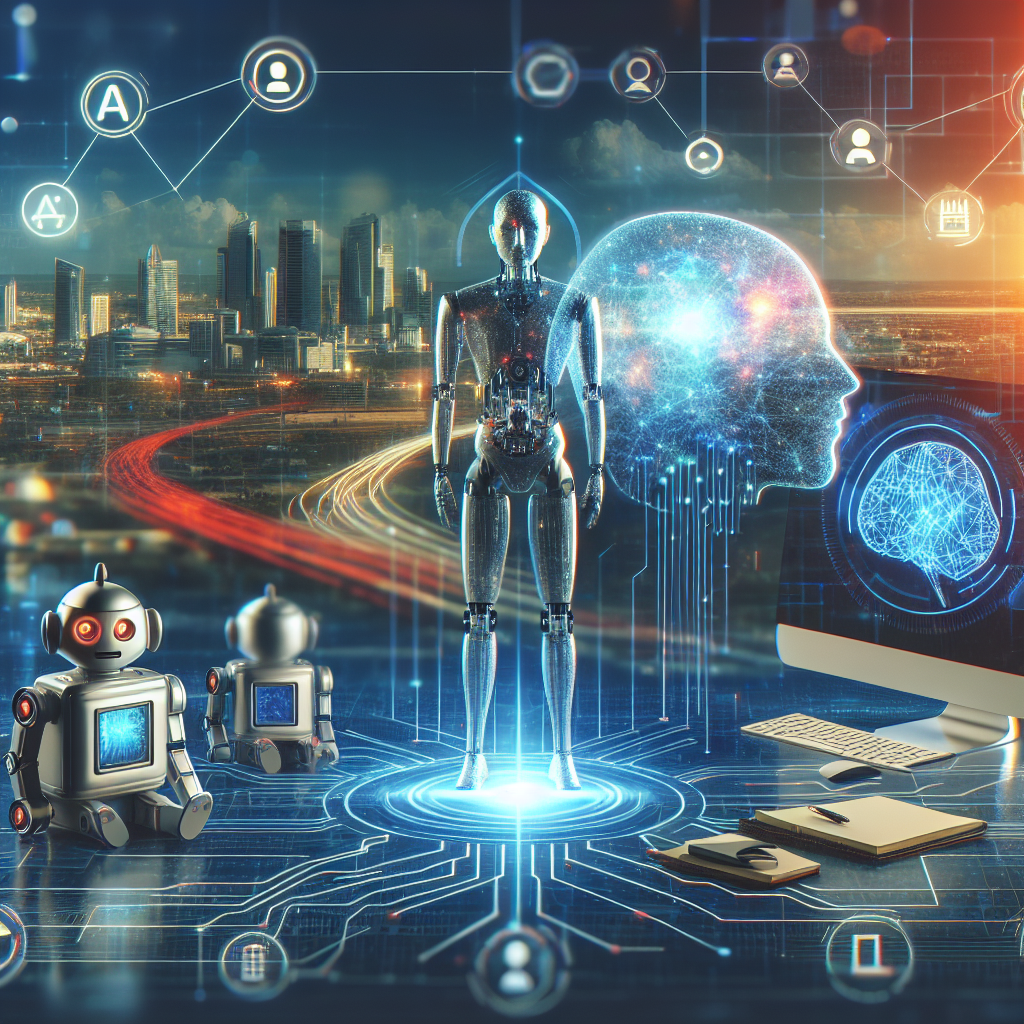Artificial Intelligence (AI) and Machine Learning are two terms that are often used interchangeably, but they are actually two distinct concepts with different implications for the future. In this article, we will explore the differences between AI and Machine Learning, as well as their respective implications for the future.
AI vs Machine Learning: What’s the Difference?
Artificial Intelligence (AI) is a broad field of computer science that aims to create machines or systems that can perform tasks that typically require human intelligence. These tasks may include speech recognition, decision-making, problem-solving, and more. AI encompasses a wide range of technologies, including machine learning, natural language processing, computer vision, robotics, and more.
Machine Learning is a subset of AI that focuses on developing algorithms and models that enable machines to learn from data and make predictions or decisions without being explicitly programmed to do so. In other words, machine learning algorithms can learn from data, identify patterns, and make decisions or predictions based on that data.
The key difference between AI and Machine Learning is that AI is a broader concept that encompasses a variety of technologies and approaches to mimicking human intelligence, while Machine Learning is a specific approach within the field of AI that focuses on developing algorithms that can learn from data.
Implications for the Future
Both AI and Machine Learning have profound implications for the future in various industries and sectors. Here are some of the key implications of AI and Machine Learning for the future:
1. Automation: One of the most significant implications of AI and Machine Learning is the automation of tasks and processes that were previously performed by humans. With the advancement of AI and Machine Learning technologies, more and more tasks can be automated, leading to increased efficiency and productivity in various industries.
2. Personalization: AI and Machine Learning enable companies to personalize products and services for individual customers based on their preferences, behaviors, and past interactions. This level of personalization can lead to better customer experiences and increased customer satisfaction.
3. Healthcare: AI and Machine Learning have the potential to revolutionize healthcare by enabling more accurate diagnoses, personalized treatment plans, and improved patient outcomes. Machine learning algorithms can analyze large amounts of medical data to identify patterns and trends that can help healthcare providers make more informed decisions.
4. Transportation: AI and Machine Learning are playing a significant role in the development of autonomous vehicles, which have the potential to revolutionize transportation and reduce accidents caused by human error. Machine learning algorithms can help autonomous vehicles navigate roads, interpret traffic signals, and avoid obstacles.
5. Cybersecurity: AI and Machine Learning can help enhance cybersecurity by detecting and preventing cyber attacks in real-time. Machine learning algorithms can analyze network traffic, detect anomalies, and identify potential threats before they cause harm.
FAQs
Q: What are some common misconceptions about AI and Machine Learning?
A: One common misconception is that AI and Machine Learning are the same thing. While Machine Learning is a subset of AI, AI encompasses a broader range of technologies and approaches to mimicking human intelligence. Another common misconception is that AI will replace human workers entirely. While AI may automate certain tasks, it is unlikely to replace humans entirely.
Q: How can businesses leverage AI and Machine Learning?
A: Businesses can leverage AI and Machine Learning to improve efficiency, personalize products and services, enhance decision-making, and gain a competitive edge in the market. By implementing AI and Machine Learning technologies, businesses can streamline operations, reduce costs, and deliver better customer experiences.
Q: What are some ethical considerations related to AI and Machine Learning?
A: Ethical considerations related to AI and Machine Learning include issues such as bias in algorithms, data privacy, transparency, accountability, and the potential for misuse of AI technologies. It is important for organizations to address these ethical considerations and ensure that AI and Machine Learning technologies are developed and deployed responsibly.
In conclusion, AI and Machine Learning are two distinct concepts with different implications for the future. While AI is a broad field of computer science that aims to create machines or systems that can perform tasks requiring human intelligence, Machine Learning is a specific approach within AI that focuses on developing algorithms that can learn from data. Both AI and Machine Learning have profound implications for the future in various industries and sectors, including automation, personalization, healthcare, transportation, and cybersecurity. It is important for organizations to understand the differences between AI and Machine Learning and leverage these technologies responsibly to drive innovation and create value in the future.

